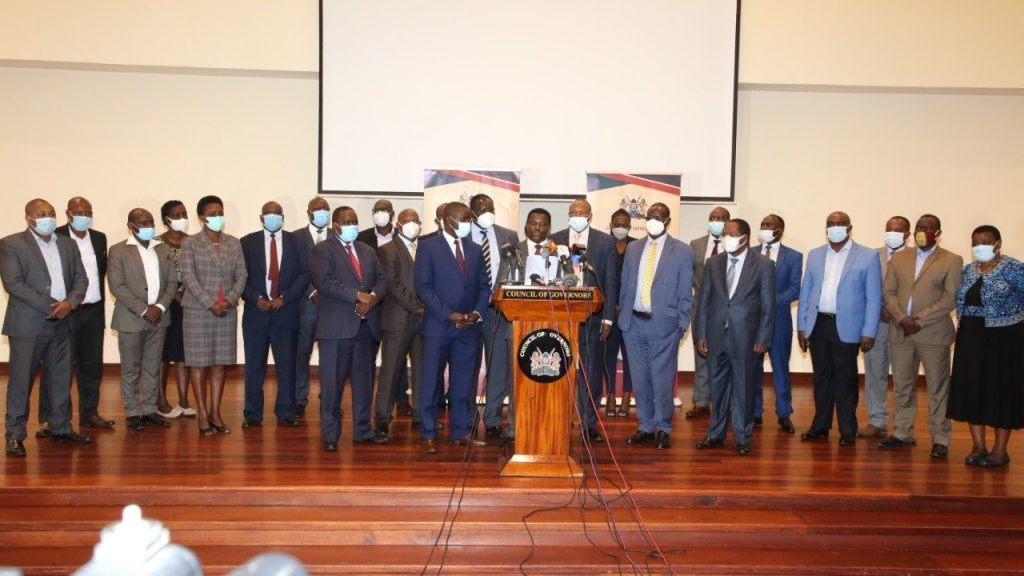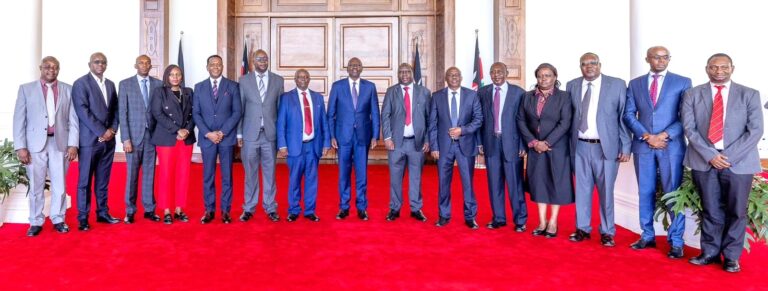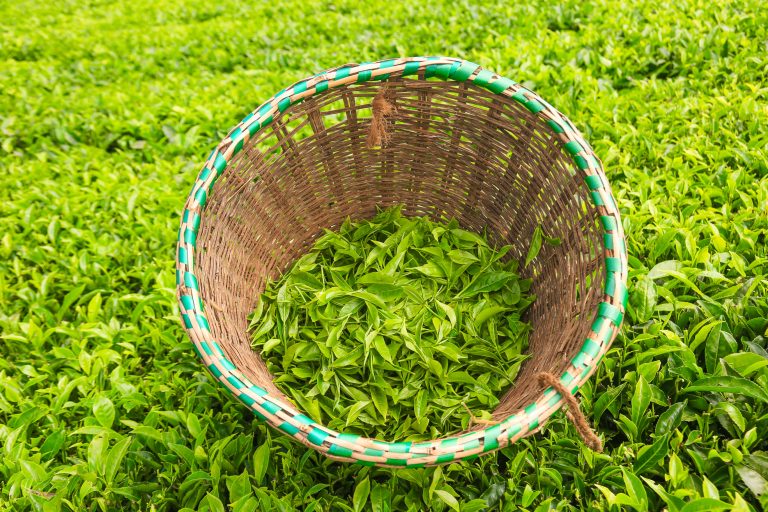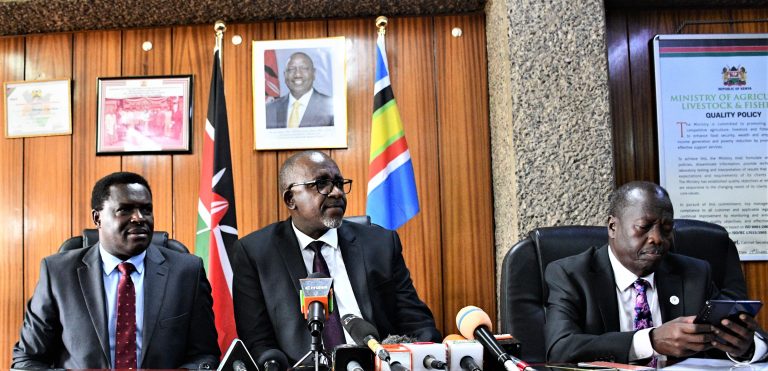Governors have rejected the proposed tea regulations throwing their implementation into uncertainty.
The Council of Governors held a meeting with the tea-growing Counties to deliberate on the proposed Tea regulations developed by the Ministry of Agriculture, Livestock, Fisheries and Cooperatives. “We note that the proposed policies, regulations and standards negate and violate the principles of devolution. Therefore, we reject them in total,” the Governors said in a statement read on their behalf by Tharaka Nithi Governor Muthomi Njuki who is also the Chairman of the Agriculture Committee.
The Governors argue that the Fourth Schedule of the Constitution has devolved to the County Governments the function of Agriculture, trade development and regulation. “Therefore, the attempt by the Ministry of Agriculture to purport to implement these functions is a violation of the Constitution and the corresponding Laws developed by the County Governments to ensure smooth implementation of these functions. We also note that the Ministry of Agriculture has put in place a Tea reforms committee that does not have the representation of County Governments who are in charge of this function,” added the Governors.
Among the provisions that they are objected to in the regulations include the proposal to ban direct sales. They argue that this earns poor tea farmers direct sales which are 5% higher than any auction price and it is the method they are supporting. The Tea auction as presently constituted according to the Governors is prone to manipulation and price-fixing by cartels adding that this is not an efficient method of selling tea hence the regulations cannot prescribe it as the only method of selling tea.
They also want wholistic reforms in the sector which will not only target the smallholder farmers but also the “giants who fleece the poor farmers”. They called for the involvement of all stakeholders in undertaking reforms.
While supporting the restructuring of KTDA, they are against reverting it to the Government. “KTDA belongs to farmers and cannot revert to Government. As such, KTDA reforms should be undertaken by the farmers to suit their needs. Further, oversight should be undertaken by County Governments,” opined the County Chiefs.
The Governors also argue that the regulations have increased the cost of issuance of licenses and certificates from the ward level to Nairobi. This, they say will lead to farmers incurring costs for transport and accommodation proposing that it be undertaken at the ward level to the County Headquarters. Tea factories will also be expected to acquire their licenses for commercial green leaf transport from Nairobi which they say will increase the costs and time taken.
The provision requiring farmers to have 20 hectares to obtain a license for a cottage industry is also under scrutiny where they say it will not empower the ordinary poor farmer to sell their tea without middlemen “who are corrupt and exploit them”
They also want the Tea Factory Management tenure to be reduced from 5 to 2 years saying farmers would want to change the management every two years in case of a problem before it becomes endemic.
“The regulations have a negative impact on devolution. The tea regulation excludes County Governments in the management and regulation of the Tea sector. The proposed regulations will take us back to the colonial days of governmental control of tea matters. These regulations are illegal and commercially unsound as they roll back the gains of economic liberalization. There is overconcentration of the Central Government in the proposals being made. Counties are not a party to the consultations – public consultations have been turned into a theatre of absurdity. We note that public participation is being choreographed to lead to a determined outcome which is meant to disadvantage the tea farmers. County Governments and the farmers are not privy of the ongoing tea sector reforms whereas agriculture is a fully devolved function. In this regard, County Governments would like to reform the tea sector themselves. We also wish to invite the Ministry of Agriculture to a consultative meeting to agree on the reforms,” says the Governors.

They have also questioned the legality of the regulations saying they contradict the Companies Act provisions on how the tea companies conduct their affairs. They, therefore, urge the Cabinet Secretary for Agriculture Peter Munya to immediately withdraw the Crops (Tea Industry) Regulations, 2020 published vide Legal Notice number 97 of 2020 to allow for further consultation with the County Governments. They also want the Ministry to immediately commence the process of reviewing the Crops and AFA Acts in consultation with County Governments.
They are recommending tea marketing through direct sales to be encouraged provided that the registered price for the buyer is higher than the auction sales price.
Finally, the Council has resolved to file a case in Court to stop implementation of the regulations.











